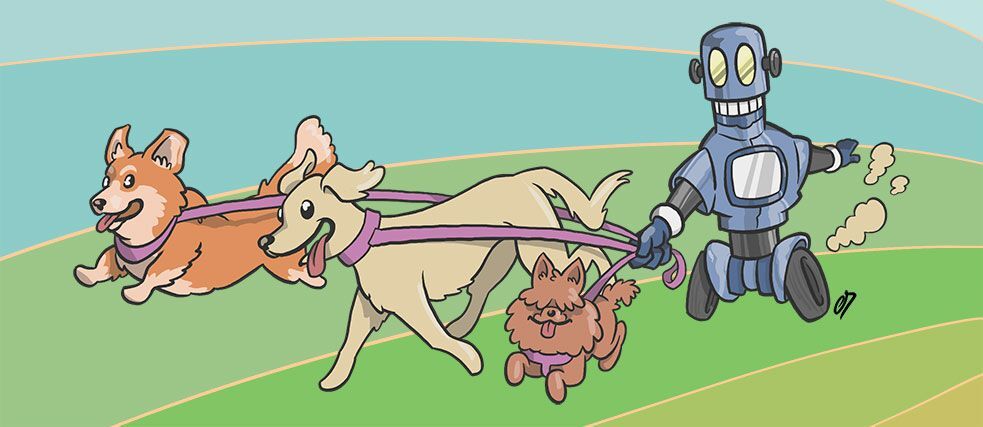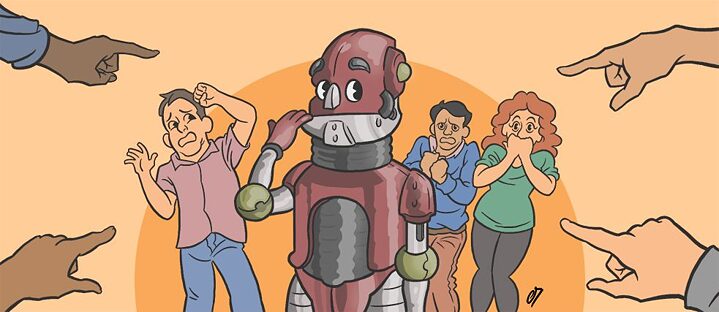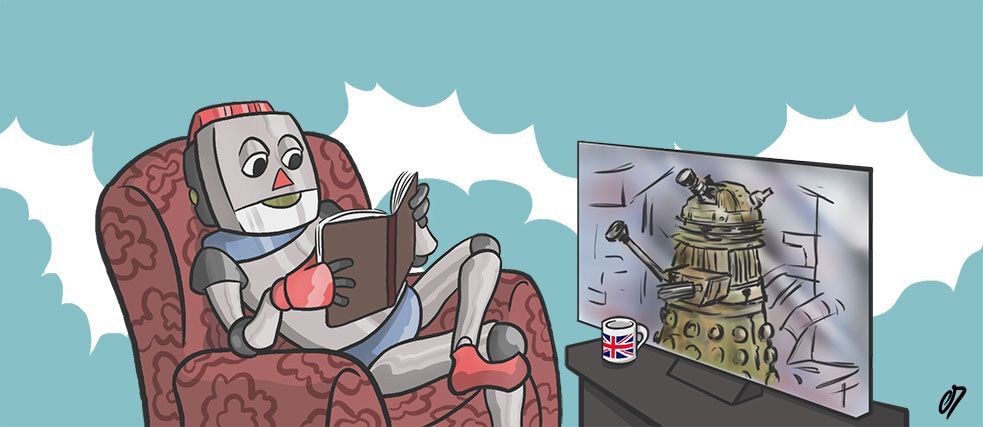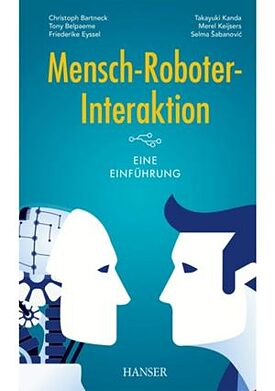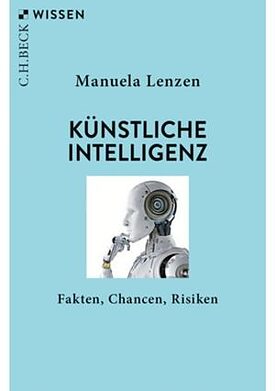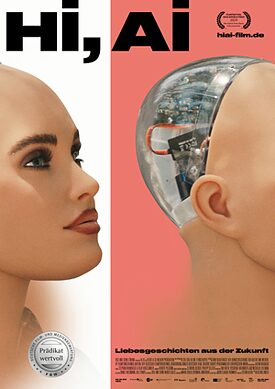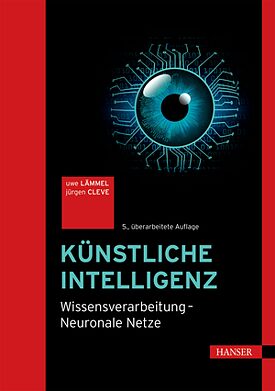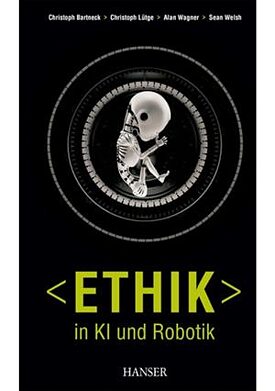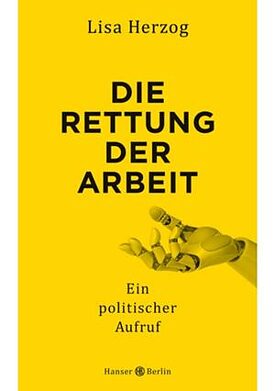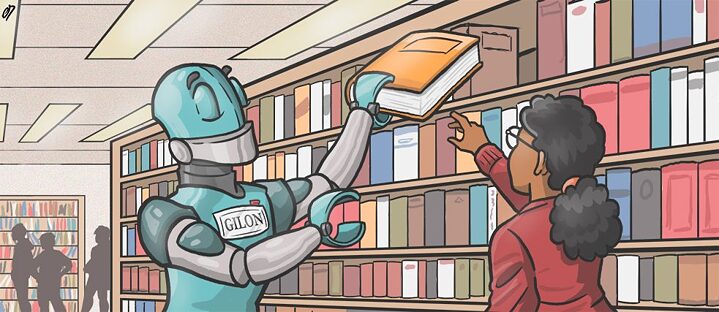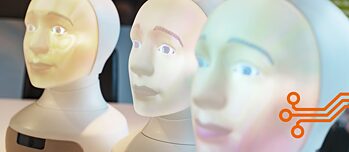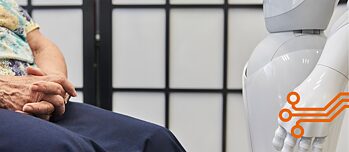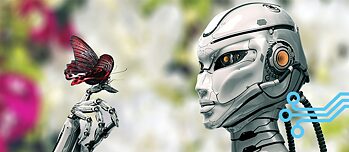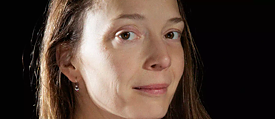A very British perspective
Here you can read more from award-winning journalists and psychologists about why we Brits are so resistant to welcoming robots into our lives.
Our Library and Robotics
The Library at the Goethe-Institut London is not only home to our robot Gilon, but also a range of books and media to assist you in exploring the topic of robotics deeper. Below you can browse through our hand-picked selection of books and media free to rent in our Onleihe. Almost all of the books and media are in German only - An excellent excuse to expand your vocabulary!
An International Pespective
Here you can discover more about the topic of Robotics via our online magazine Zeitgeister, which aims to bring together international perspectives from culture and society.
